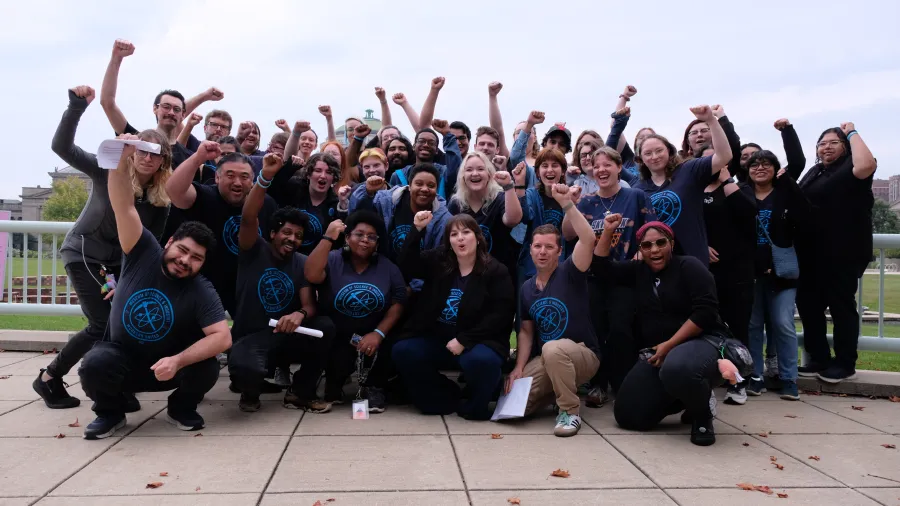Museum of Science and Industry employees vote to authorize strike

Museum of Science & Industry (MSI) employees represented by AFSCME Council 31 announced on Sept. 23 that they have voted to authorize a strike if necessary.
More than 95% of union members cast a vote; 90% voted yes to authorize a strike.
“The message to management is loud and clear: The status quo is unacceptable, the days of poverty wages are over, and the time for delay is past,” said David Dowd, a guest engagement facilitator and a member of the union bargaining committee. “We MSI employees are standing united, and we are willing to do whatever it takes to win the fair contract we deserve.”
The union bargaining committee is now empowered to call a strike if and when necessary.
Management hasn’t given workers a raise since 2022. Employees say they work second jobs, skip meals and still struggle to support their families on museum wages that start at the city minimum.
“The public needs to know that this world-class institution pays us poverty wages,” said Josh Garcia, a guest engagement representative at the museum and a member of the union bargaining committee. “Today many of our colleagues make just $16.60 an hour. That’s not enough to get by, especially when the cost of living keeps going up but we’re paid the same.”
In addition, management is:
- Refusing to offer any improvements to vacation or sick time;
- Refusing to offer any holiday pay for part-time workers;
- Refusing to offer any premium pay for bilingual employees; and
- Refusing to provide any paid parental leave at all.
Tara Foster, a senior educator at the museum and a member of the union bargaining committee, said, “We choose to work at MSI because it is a mission-driven organization with a mission that we love. The work is meaningful, and in the past, there was a level of respect for us as professionals, and a level of flexibility that allowed for work-life balance, that meant a little bit less pay was a trade we were willing to make. But it’s getting harder to feel that way. Turnover is high because pay is low, and those positions have not been filled, so staffing is down and our workload is up.”
